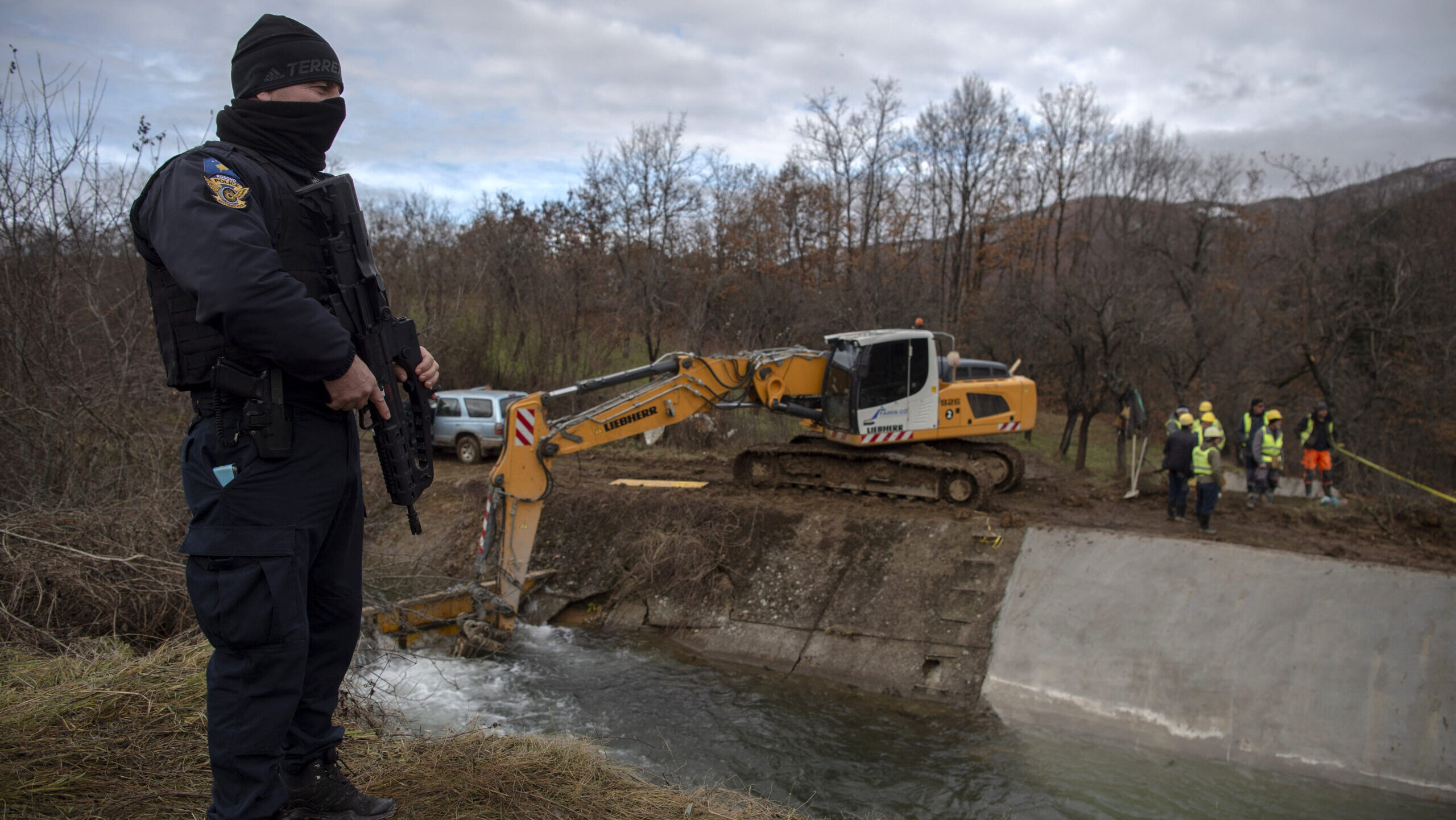Tensions have reignited between Kosovo and Serbia following an explosion on Friday at a canal near Zubin Potok. The canal supplies water to two coal-fired power plants that are vital to Kosovo’s energy supply.
The Kosovo government labelled the explosion an act of terrorism orchestrated by Serbia, a claim that Serbia denied.
‘Finding out the truth is in the best interest of our country,’ Serbian President Aleksandar Vučić told reporters on Sunday. ‘We are ready to share information with everyone, including Pristina.’ He reiterated that Serbia had no involvement in the incident and accused Kosovo Prime Minister Albin Kurti of exploiting the event to consolidate control in the north of the country, where the Serb majority refuses to recognize Pristina’s institutions and considers Belgrade their capital.
Following the explosion, Kosovo police detained eight individuals suspected of involvement in the attack. ‘We managed to repair the damage, arrest the suspects, and seize a significant arsenal of weapons,’ said Kosovo Interior Minister Xhelal Svecla. According to police reports, most of those arrested are members of the local Serb organisation Civilna Zaštita (Civil Protection), which the Kosovo government has designated as a terrorist group.
Both the European Union and the United States condemned the attack. Hungarian Prime Minister Viktor Orbán addressed the explosion in a post on X, stating: ‘Instead of biased accusations, we call for an impartial and comprehensive investigation. Restraint is imperative to avoid further escalation in the region.’
Orbán Viktor on X (formerly Twitter): “We condemn the attack against #Kosovo’s critical infrastructure in Zubin Potok. Instead of biased accusations, we call for an impartial and comprehensive investigation. Restraint is imperative in order to avoid further escalation in the region. / X”
We condemn the attack against #Kosovo’s critical infrastructure in Zubin Potok. Instead of biased accusations, we call for an impartial and comprehensive investigation. Restraint is imperative in order to avoid further escalation in the region.
Hungarian Defence Minister Kristóf Szalay-Bobrovniczky stressed that NATO’s Kosovo Force (KFOR) secured the site following the explosion. The NATO contingent, consisting of more than 4,000 troops—including Hungarian soldiers—has been stationed in Kosovo for 25 years to help maintain peace. ‘Proud of their service, safeguarding peace for all!’ Szalay-Bobrovniczky wrote on X.
KFOR and Hungary
Since Kosovo unilaterally declared independence in 2008, tensions with Serbia— which does not recognise Kosovo—have persisted. Major General Ferenc Kajári commanded NATO’s KFOR mission from 2021 to 2022, a period marked by heightened tensions. The Hungarian-led command was widely regarded as a success by the international community, as the conflict did not escalate during that challenging time.
‘Hungary and the Hungarian Defence Forces have proven their capability to handle such large-scale tasks. This is clearly reflected in the feedback from NATO leaders and the concerned member states, who were unanimously satisfied with the performance of the Hungarian Defence Forces,’ Kajári said in an earlier interview with Magyar Nemzet.
In May 2023, however, an unprecedented event unfolded when NATO peacekeepers clashed with Serbian protesters during crowd dispersal operations in the municipality of Zvečan. More than twenty Hungarian soldiers were injured in the confrontation, including seven who sustained serious injuries. The injured soldiers were transported back to Hungary by the Hungarian Defence Forces for medical treatment.
Related articles:








